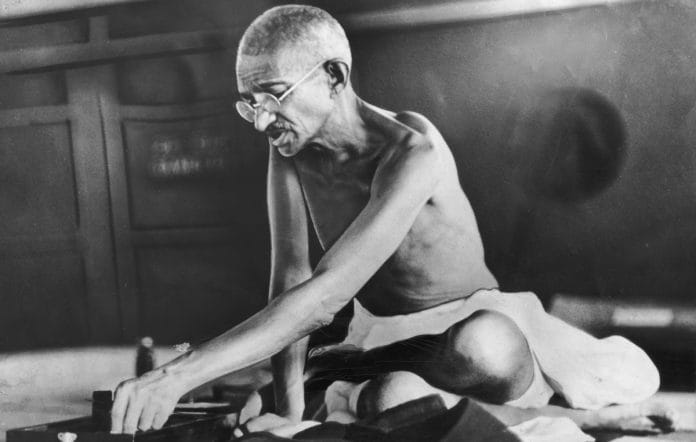As India gets ready to celebrate the 150th year of the Mahatma, ThePrint brings you some new insights into the man behind Gandhi.
New Delhi: It’s the 149th birth anniversary of Mohandas Karamchand Gandhi, and a grateful nation is paying tribute.
We may think we know all there is to know about the Mahatma, given what history books, sundry biographies and cinematic representations have taught us. But do we, really?
Did you know, for example, that Gandhi was a trained nurse? That he tried to stop Bhagat Singh’s execution till the very end?
ThePrint digs up five lesser-known facts about the Father of the Nation.
A trained nurse
Gandhi received training in nursing when he was 30. He used this knowledge to help injured soldiers in South Africa during the Anglo-Boer war.
He also helped in setting up health camps during the Zulu rebellion against the British in South Africa in 1906. Gandhi also helped in carrying soldiers down from the top of the hills to the camps.
“The fact that he contributed immensely to public health is not very well known. He also worked for eradication of plague and other deadly diseases in India,” said A. Annamalai, Gandhi scholar and director of the National Gandhi Museum, New Delhi.
Also read: The two family members of Mahatma Gandhi who dared to disagree with him
Platonic love connection in Lahore
Gandhi was “utterly charmed” by Sarala Devi Chaudhurani, a progressive, middle-aged woman who lived in Lahore with her husband.
She was the daughter of Rabindranath Tagore’s sister, and was very accomplished. She was a poet who sang at nationalist gatherings. This fact finds mention in Ramchandra Guha’s latest book, Gandhi: The Years That Changed the World, 1914 to 1948.
“He was charmed, besotted…they got along famously. They were truly enchanted by each other,” Guha told ThePrint in an earlier interview. “But there was no sexual consummation.”
Did not allow his son to study abroad
Gandhi has often been criticised for neglecting his family, and holding them to the same principles he preached. He stopped his son, Harilal, from going abroad to study law during the freedom struggle.
“His son had got an opportunity to get admission in a fully-funded law course in London, but Gandhi did not allow him,” Annamalai said.
According to historians, Gandhi had met a young Indian man in South Africa who was there to study on a fully-funded scholarship. But he convinced the youngster to go back to India, because the country needed him.
A similar situation arrived in his life when Harilal wanted to go abroad to study. But Gandhi, who was educated at the University College London and the Inner Temple, denied permission to Harilal, advising him to stay in India and participate in the freedom struggle.
Helped draft petition to save Bhagat Singh
Another point of criticism against Gandhi is that he did not try to stop the hanging of Bhagat Singh, Rajguru and Sukhdev. But a BBC interview with Lord Irwin, then Governor-General of India, which has been accessed by the National Gandhi Museum, reveals how the Mahatma actually tried till the end to stop the hanging.
In this interview, Lord Irwin said the lawyer who drafted the petition was Gandhi’s friend, and the Mahatma himself made corrections to the petition. Irwin said Gandhi asked him if he could tell people he pleaded for Bhagat Singh’s life. The Governor-General told him he could, but should add that nothing could be done at that point.
The museum authorities are in talks with the BBC to get a copy of the interview to officially include it in the museum display.
Also read: Mahatma Gandhi’s dream was khadi in every home. But this govt firm wants a monopoly
Sharp reader of personality and moods
Gandhi was also known to be a sharp reader of people’s personality and their moods. Once he dictated a letter to his aide Meera and, after going through it in the evening, he asked her if she was angry at the time.
“He saw the handwriting, and understood that it was written by someone who was angry and upset,” Annamalai said.






